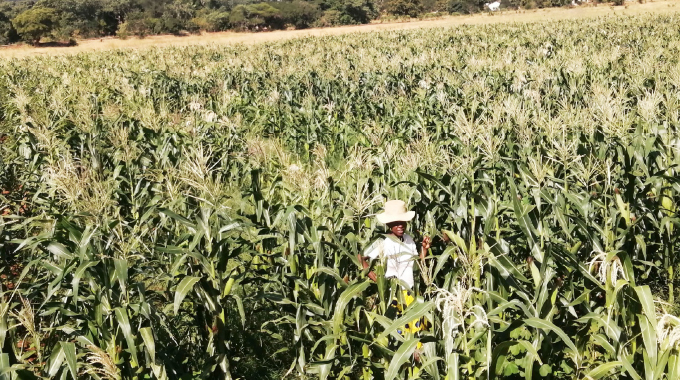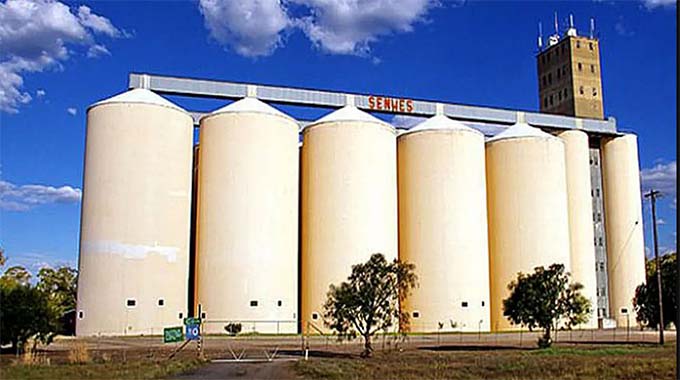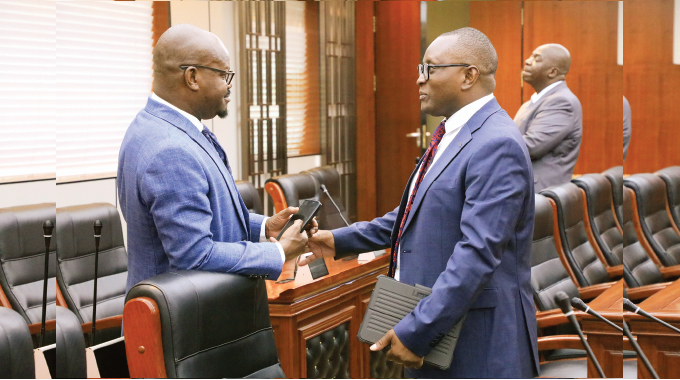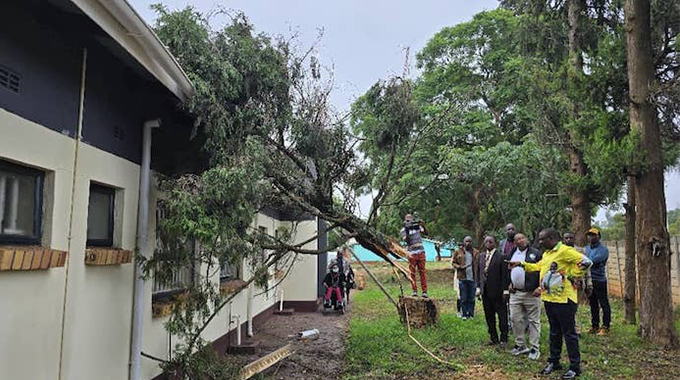Revamped Tuli Makwe Irrigation flourishes

Suku Dube-Matutu, [email protected]
AT a time when the country is experiencing the El Nino-induced drought, the transformation of Tuli Makwe Irrigation Scheme into a business model is bearing positive results with farmers expecting to harvest about 560 tonnes of maize from 80 hectares, which was planted this summer cropping season.
Members under the scheme were previously operating as individuals in separate blocks until the Government chipped in last year and upgraded the scheme into a vibrant business hub under the Vision 2030 Accelerator programme.
Enhanced productivity has increased earnings value for 180 families who are members of the scheme.
As part of the transition, the Government handed over all the assets at the irrigation scheme such as equipment and infrastructure to the farmers.
The irrigation scheme has also put five hectares under groundnuts, five hectares under leafy vegetables with more cash-crop projects to support the day-to-day running of the irrigation scheme underway.

Grain Marketing Board
Following its rejuvenation, farmers from Makwe delivered 36 tonnes of winter wheat harvest to the Grain Marketing Board (GMB) and were able to share dividends.
Tuli Makwe Business Unit chairperson, Mr Louise Ncube, said the farmers were focused on further growing the business.
“We have 80 hectares under maize crop, 30 hectares under centre pivot and 50 hectares under piped surfaced system. What is pleasing is that we are growing this crop as one single block unlike before when each farmer had their own space and crop,” he told Chronicle in an interview.
“Ever since we were upgraded to a business model, all farmers have come on board and we are treating our project as a proper business.
“Last year we delivered 36 tonnes of wheat to GMB and we are hoping to deliver more maize this season. Working collectively will enable us to sustain our scheme and keep it running. We now have separate funds, which go towards sustaining the scheme and we want to grow this pocket.”

Wheat crop
He said members were pleased to play a role in contributing to national food and nutrition security while benefiting locals, especially at a time when the country is facing a drought situation.
Ms Nomathemba Mbano, the secretary of the business unit said the knowledge shared with the farmers has helped to direct their operations.
“We have been equipped to operate our business and our target is to expand production and introduce even more crops. We don’t want to return to that time when our irrigation scheme became redundant and we are working tirelessly to ensure that it doesn’t happen,” she said.
Ms Mbano said they need assistance in installing solar as they are relying on electricity. She said power cuts were disrupting the supply of water to the crops.

Irrigation
Tuli Makwe Irrigation Scheme Agricultural Rural Development Authority (Arda) business manager, Ms Talent Machaka, said farmers have seen the scheme gradually transform from subsistence agriculture to commercial agriculture in line with the thrust of the Rural Development 8.0 model.
“Ever since we started operating as a business we have had quite a number of positive results and it shows that farmers are responding well. We managed to purchase a planter, boom sprayer and livelihoods have been transformed.
“Farmers are also able to get grass and stocks to feed their livestock. They have also grown a hectare of maize and 2,5ha sunflower to boost their day-to-day financial running of the business as they now understand the business aspect of agriculture, that you invest once and the business must run itself,” she said.
The 200-hectare irrigation scheme is the largest communal irrigation scheme in the district but has been lying idle for the past five years until it was rehabilitated under the Government-led Small Holder Irrigation Revitilisation Programme (SIRP).
Established in the 1960s Tuli Makwe Irrigation Scheme was once the bread basket and major source of income for villagers in the area. Government ,working with various partners, is rehabilitating irrigation schemes that have been lying idle in Matabeleland South Province to improve food and nutrition security and ensure the attainment of Vision 2030.
The SIRP was launched in November 2017 to assist in the revitalisation of irrigation schemes across the nation through the rehabilitation of infrastructure. It is a Government-led programme funded by the International Fund for Agricultural Development (IFAD). — @DubeMatutu












Comments